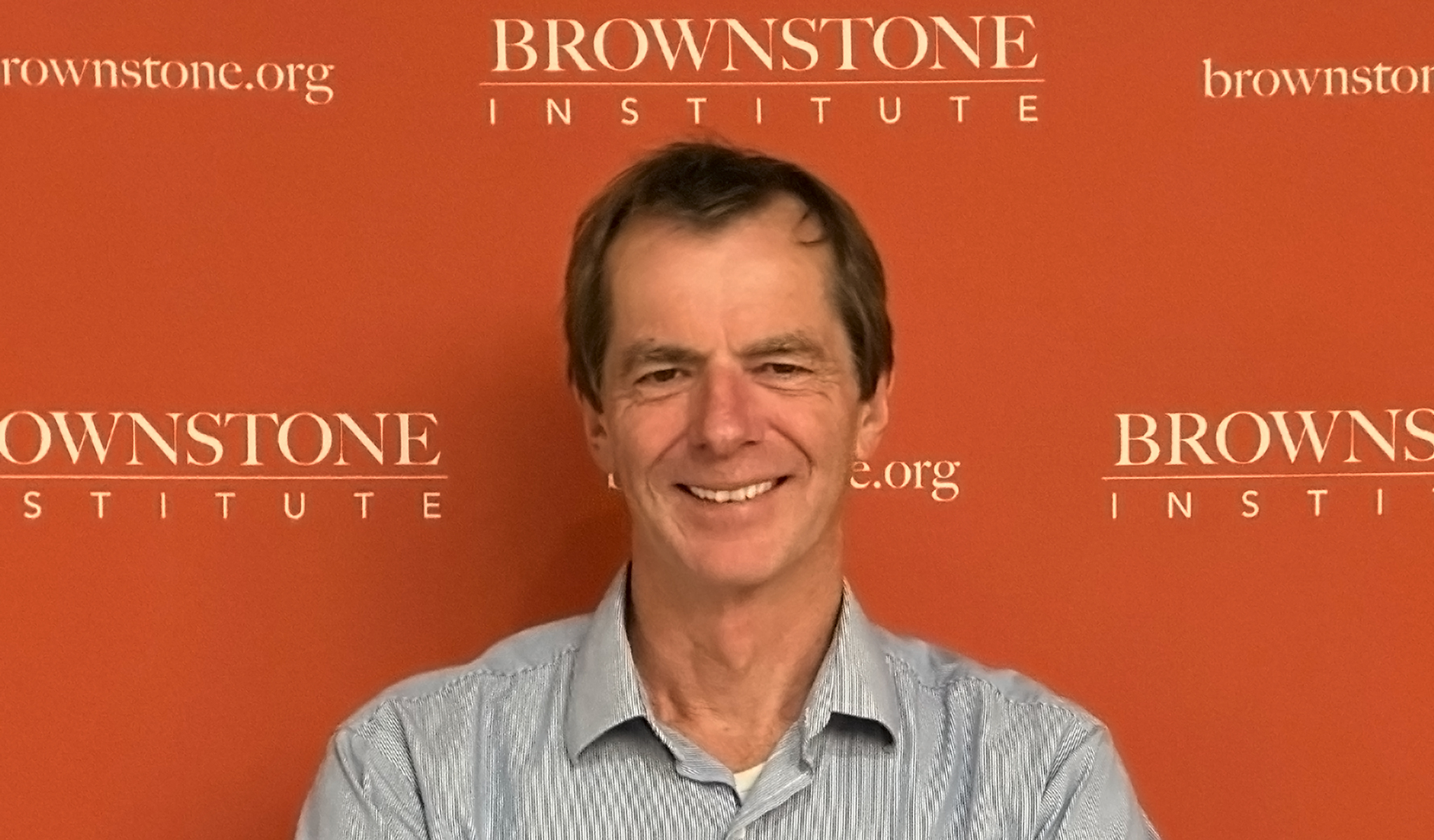“We The Peoples of the United Nations determined (…) to promote social progress and better standards of life in larger freedom,”
United Nations Charter Preamble (1945)
The United Nations (UN) Secretariat will hold the next Summit of the Future in New York on 22-23 September 2024. It is a vast political program covering the noblest of causes including poverty reduction, human rights, environment, climate change, development, and the welfare and rights of children, youth, and women. World leaders are expected to endorse a declaratory Pact for the Future, and commit to act toward its realization.
It all looks wonderful. As in days of old, the rich, powerful, and entitled are coming to rescue us from ourselves and make us live better lives. Freedom, after all, is intrinsically unsafe.
This is the first in a series that will look at the plans of the UN system designing and implementing this new agenda, covering implications for global health, economic development, and human rights.
Climate and Health at the WHO: Building the Authoritarian Dream
Amidst all the hype and posturing regarding the negotiations on pandemic texts at the recent 77th World Health Assembly (WHA) in Geneva (Switzerland), perhaps the most consequential resolution before the WHA slipped through, approved, but virtually unnoticed. The Resolution WHA77.14 on Climate Change and Health was approved without debate, opening the door for the World Health Organization (WHO) ─ a UN specialized agency ─ to claim a broad swath of normal human activity as a potential threat to health, and therefore coming under the purview of the WHO’s detached business-class bureaucrats.
It was highlighted by a Strategic Roundtable on “Climate change and health: a global vision for joint action,” where speakers, moderated by the Lancet’s Editor-in-Chief Richard Horton, included WHO Director-General (DG) Tedros Ghebreyesus, former US Vice President Al Gore (by video message), and CEO of the 28th Climate Conference of States Parties Adnan Amin.
The Resolution was proposed by a coalition of 16 countries (Barbados, Brazil, Chile, Ecuador, Fiji, Georgia, Kenya, Moldova, Monaco, Netherlands, Panama, Peru, Philippines, Slovenia, United Arab Emirates, and the UK) and passed without changes, mandating the DG to: i) develop a “results-based, needs-oriented and capabilities-driven global WHO plan of action on climate change and health,” ii) serve as a global leader in the field of climate change and health by establishing a WHO Roadmap to Net Zero by 2030, and iii) report back to future WHA sessions.
United Nations System’s “Newspeak” on Climate Change
There is little surprise in this. It is another predictable move on the global climate chessboard. In the last decade, activities and documents from the UN system have increasingly included climate change as a “newspeak” to signal full compliance with the official narrative.
The head of the UN system, Secretary-General Antonio Guterres, is known for pushing the narrative further. In 2019, he posed in water for a picture for Time Magazine’s coverage on “Our sinking planet.” Last summer, he announced that “the era of global warming has ended…the era of global boiling has arrived.”
On 2024 World Environment Day (5th June), he doubled down on his rhetoric: “In the case of climate, we are not the dinosaurs. We are the meteor. We are not only in danger. We are the danger.” We are, it appears, a poison on our planet.
Satellite entities have wildly added their creativity and imagination: UNEP hammering on the “triple planetary crisis of climate change, nature and biodiversity loss,” UNICEF reporting on the “climate changed-child,” UNWOMEN discovering the “interconnection between climate change and gender inequality,” OHCHR claiming that “climate change threatens the effective enjoyment of a range of human rights including those to life, water and sanitation, food, health, housing, self-determination, culture and development,” and UNESCO fully committed “to addressing the impact of climate change on culture, and to enhancing the potential of culture for global climate action.”
Nomination of First Ever WHO Special Envoy for Climate Change and Health
As for WHO, DG Tedros Ghebreyesus has also demonstrated his mastery of dogmatic claims. Climate change, he insists, constitutes “one of the biggest health threats” and “the climate crisis is a health crisis.” His mandate has therefore been broadened from specific environmental issues including air pollution from particulates and chemicals to the whole climate change spectrum. In 2023, the WHO estimated that “between 2030 and 2050, climate change is expected to cause approximately 250,000 additional deaths per year, from undernutrition, malaria, diarrhoea and heat stress alone.”
Strangely, however, deaths attributable to cold weather, estimated at 4.6 million globally per year, were not weighed in balance. Nor are inevitable deaths from undernutrition related to a lack of accessible energy for agriculture and transport. Accounting for a reduction in such deaths would significantly reduce projected mortality and perhaps demonstrate an overall advantage. For instance, rising CO2 has increased plant growth and contributed to the world’s ability to feed 8 billion people, an achievement once considered impossible and is obviously highly critical to maintaining health.
The WHO’s leaders have become bolder. In June 2023, in a minor lapse of equity, inclusion, and transparency criteria, the DG appointed Dr Vanessa Kerry as “the first ever” Special Envoy for Climate Change and Health for being “a renowned global health expert and medical doctor and CEO of Seed Global Health.” The press release overlooked any connection with her father, former US Secretary of State John Kerry ─ a key US Democratic politician, well-known personality at UN climate forums, and first-ever US Presidential Envoy for Climate (January 2021-March 2024). Her nomination, apparently, was purely meritocratic.
It is estimated that $27.6 million is required to create the reports implementing the 2024 Resolution. Now, $20 million will come from WHO’s biennial 2024-25 budget, and the gap of $7.6 million will be raised through WHO’s continued “discussions with Member States, development agencies and philanthropic organizations.” People who will, perhaps, benefit from the WHO pushing the products they have invested in, such as heavily processed substitutes to (climate-harming) natural foods.
Misleading Resolution WHA77.14 on the “Link between Health, Environment and Climate Change”
All of this appears to follow conventional political and diplomatic playbooks. It comes unstuck if one applies a critical look at how Resolution WHA77.14 was built.
It referred to Resolution WHA61.19 (adopted in 2008) on climate change and health, Resolution WHA68.8 (adopted in 2005) addressing the health impact of air pollution, and Resolution WHA76.17 (adopted in 2023) on the impact of chemicals, waste, and pollution on human health as follows.
Recalling resolution WHA61.19 (2008) on climate change and health and welcoming the work carried out so far by WHO in pursuit of it;
Recalling also resolution WHA68.8 (2015) on addressing the health impact of air pollution and resolution WHA76.17 (2023) on the impact of chemicals, waste and pollution on human health, which recognize the link between health, environment and climate change;
Resolution WHA61.19 was adopted based on a WHO report “Climate change and health.” This report stated that “There is now a strong, global scientific consensus that warming of the climate system is unequivocal, and is caused by human activity, primarily the burning of fossil fuels which releases greenhouse gases into the atmosphere” (para. 1) and that “WHO has, for several years, stressed that the health risks posed by climate change are significant, distributed throughout the globe, and difficult to reverse” (para. 2). These affirmations were made without assessment of levels of evidence (strong, moderate, weak), of the extent to which (modifiable) human activity is involved, or of the actual positive versus negative impacts of higher temperatures (and atmospheric CO2).
Contrary to the statements by Resolution WHA77.14, neither Resolution WHA68.8 nor Resolution WHA76.17 mentioned climate change in the context of pollutants. Excluding rare natural phenomena, particulate and chemical air pollution do result from human activities, including indoor air pollution (e.g. cookstoves) and transport and industrial waste. Hence, these past Resolutions recognized a link between these pollutants and human health, which is common sense. They did not recognize a link between health, environment, and climate change.
Nevertheless, we can probably relax and wait. The WHO’s upcoming reports can be expected to claim a link. They have $27 million to spend on that.
The Climate Agenda Versus “We the Peoples”
It is easy for wealthy self-proclaimed philanthropists and international and governmental bureaucrats to call for phasing out fossil fuels. Living on tax-paid salaries in secure jobs, in economies made rich through the availability of cheap energy, they are able to renew their commitment annually at the Conference of States Parties (COP) to the UN Framework Convention on Climate Change, ignoring the reality that their very ability to be there is due to fossil fuels. The most recent venues ─ Dubai, Sharm-El-Sheik, and Glasgow ─ all built their prosperity on this same energy base.
Being obsessed with the man-made climate narrative, the UN system pushes poor countries to adopt green energies for lighting and cooking, rather than developing the large-scale energy infrastructure that still forms the backbone of wealthier societies.
There seems to be no shame vis-a-vis 2.3 billion people on earth that, according to the WHO, must still rely on dirty and dangerous cooking fuels such as cow dung, charcoal, and wood ─ negatively impacting women and children’s health through particulate air pollution. Increasing the cost of fossil fuels directly increases further deforestation and resultant desertification (and regional climate change) in areas such as East Africa. It feels good, apparently, for the activists of climate COPs and Extinction Rebellion to force African women to walk further each day for firewood, denuding landscapes and their meager savings.
There seems to be no shame either when Western bilateral and multilateral largesse to low-income countries comes on the condition that they pass a “climate check,” or must be spent on developing “green” but unreliable solar and wind generation which barely supplement the base energy supplies of most donor countries. We happily burn Nigerian oil, but our virtue requires Nigerians to do better. After looting wealth through colonialism, this is rubbing noses in the dirt of the poverty left behind.
One can confidently predict that the rhetoric will continue, and more “soft laws” ─ UN declarations, strategies, plans-of-action, and agendas ─ will complement the existing “hard laws” of the UN Framework Convention on Climate Change and its Protocol. At the WHO, more funding will come to extend the growing industry of climate change and health, diverting financial and human resources from far greater, but less boutique, health burdens.
A plan of action will be put before a future WHA to agree to a binding document seeking to harden the 2024 Resolution into requirements. Highly questionable assumptions that pandemics and malaria, and even tuberculosis, are worsened because of climate change will be drawn to support the global plan, complementing the coming Pandemic Agreement and the massive surveillance system set up by the freshly adopted IHR Amendments to ensure pandemic lockdowns.
Malaria, tuberculosis, and diseases of undernutrition and poor hygiene are primarily diseases of poverty. People in wealthy countries live longer primarily because of improvements in sanitation, living conditions, and nutrition. These improvements were achieved by using energy for transport, to build infrastructure, and to massively improve the efficiency of agricultural production. Locking future generations in low-income countries into poverty will not improve their health and well-being.
This increasingly charade-like global health circus will, in the end, destabilize the world and harm us all. To address complex issues, the world needs rational and honest debates, rather than games played by a self-entitled few. The WHO is demonstrating that it is no longer the organization to lead us to better health. It is on us to regain control of our own future.
Join the conversation:


Published under a Creative Commons Attribution 4.0 International License
For reprints, please set the canonical link back to the original Brownstone Institute Article and Author.










